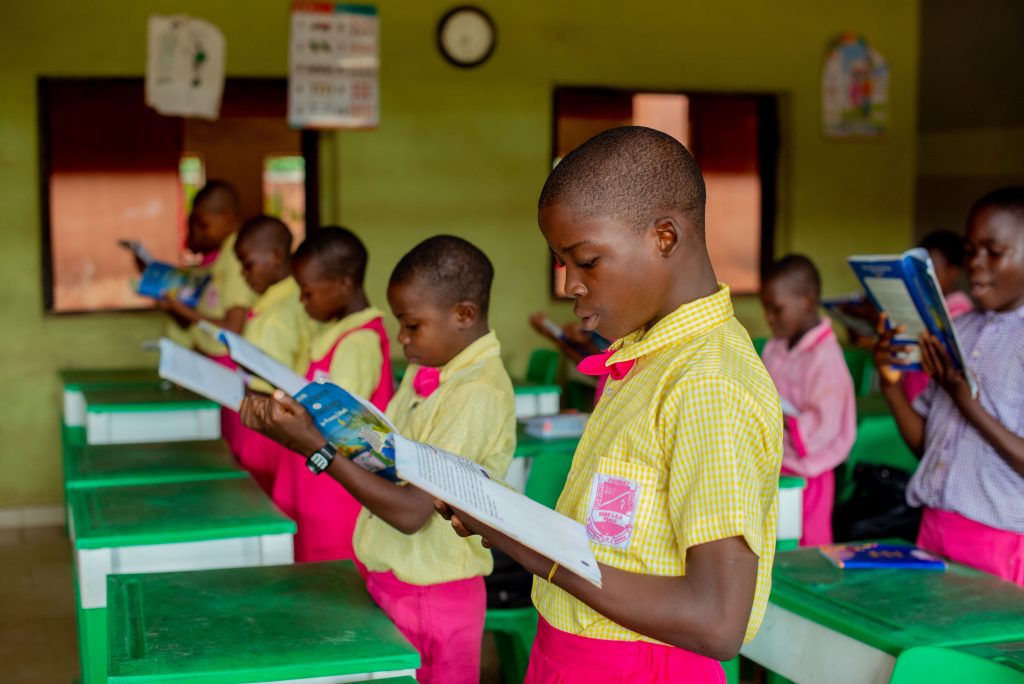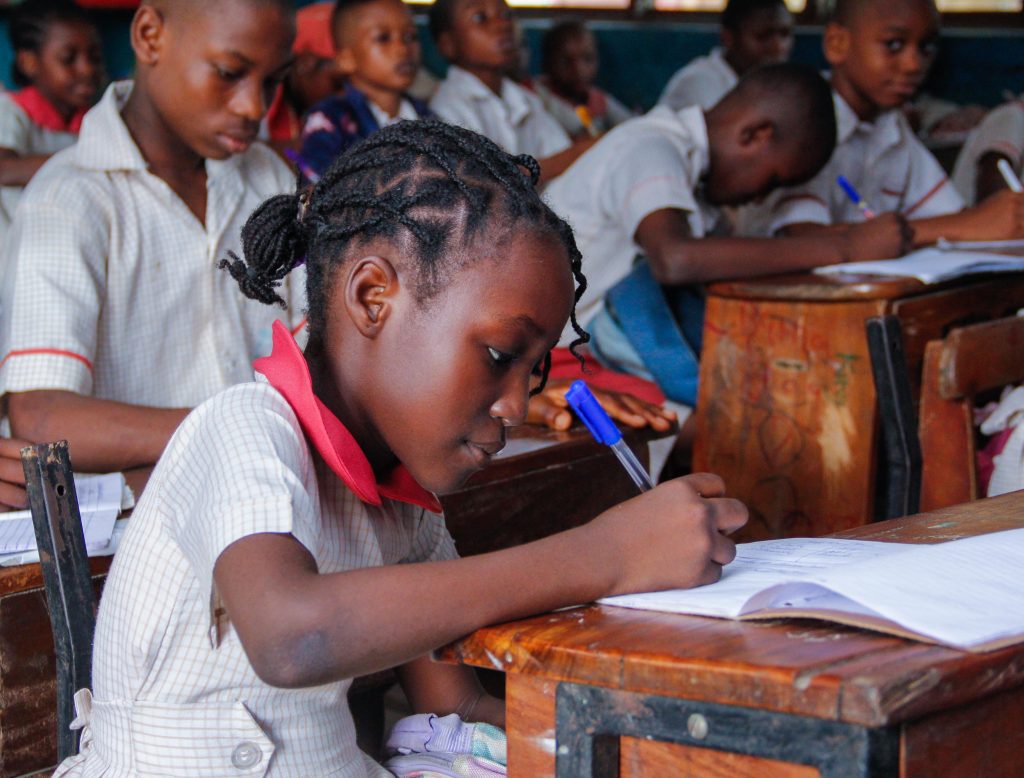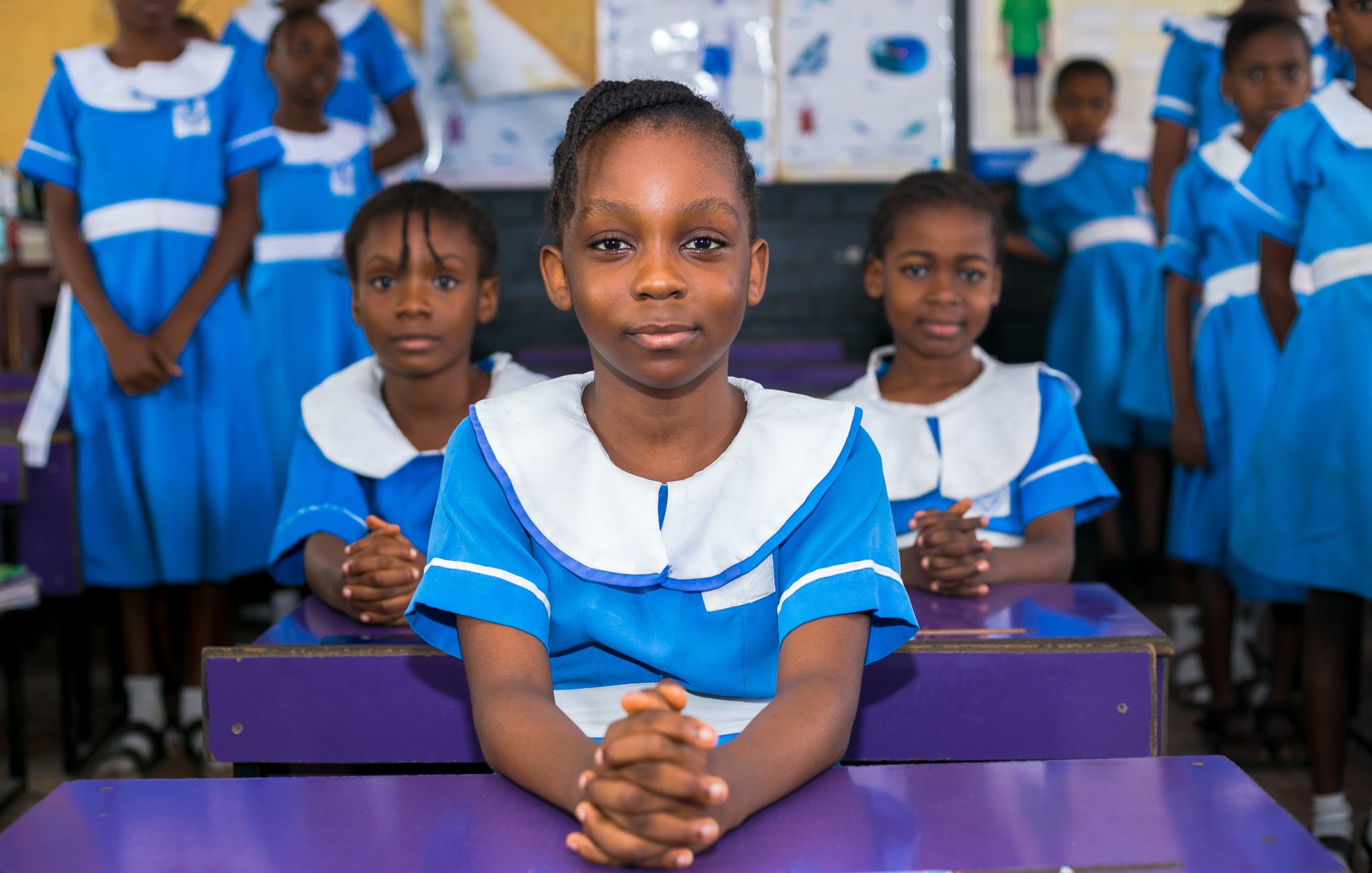Home > Solutions To Learning Poverty
Solutions To Learning Poverty
2019 Nobel Prize winning economist, Professor Michael Kremer and co-author's ground-breaking study into NewGlobe’s methodology in Kenya reveals learning gains among the largest ever measured in international education.
Overview
“This study shows that attending schools delivering highly standardized education has the potential to produce dramatic learning gains at scale, suggesting that policymakers may wish to explore the incorporation of standardization, including standardized lesson plans and teacher feedback and monitoring, in their own systems.”
Professor Kremer and his co-authors found that primary students, through Grade 8 in NewGlobe’s Kenya program gain almost an additional year of learning (0.89) under the NewGlobe integrated methodology, learning in two years what their peers learn in nearly three.
For early childhood development (ECD) students the gains were even bigger. Those students supported by NewGlobe gained almost an additional year and half of learning (1.48), learning in two years what students in other schools learn in three and a half years.
At a glance
- After two years, primary students, up to Grade 8 taught using NewGlobe’s full learning system are nearly a whole additional year of learning ahead of students in other schools taught using ordinary methods – with learning increased by 0.81 standard deviations.
- For Early Childhood Development students, two years of teaching using NewGlobe’s methods puts them a year-and-a-half of additional learning ahead of students in other schools – with learning levels increased by a remarkable 1.35 standard deviations.
- In NewGlobe-supported schools, 82% of Grade 1 students – typically six to seven-year-olds – can read a sentence, compared with 27% of those in other schools.
- NewGlobe methods increased equity. Learning gains were greatest for students predicted to have the lowest performance who outperformed similar students attending other schools by a larger margin than their more advantaged peers.
- Girls making the same leap in learning as boys.
Key Takeaway
- “The effects in this study are among the largest in the international education literature, particularly for a program that was already operating at scale."


NewGlobe’s methods increased learning by 1.35 standard deviations for Early Childhood Development students and 0.81 standard deviations for primary students, up through Grade 8.
To put these into context, these effect sizes far exceed the 99th percentile and represent learning gains in the top 1% among large, rigorous studies in emerging markets.




